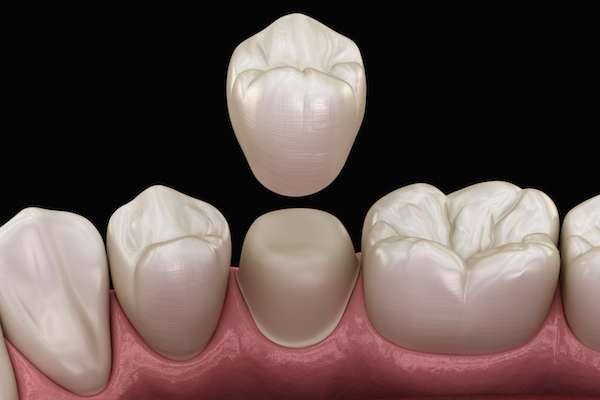What To Ask Your General Dentist When Preparing for a Crown
 If a general dentist recommends a dental crown, there are a variety of reasons why. Crowns can be used for cosmetic corrections as well as for protection and support. These dental restorations may seem intimidating to those who have never had one, but they do not have to be. Here are some questions to ask a dentist so that the experience can go as smoothly as possible.
If a general dentist recommends a dental crown, there are a variety of reasons why. Crowns can be used for cosmetic corrections as well as for protection and support. These dental restorations may seem intimidating to those who have never had one, but they do not have to be. Here are some questions to ask a dentist so that the experience can go as smoothly as possible.
Preparing for a crown
Most crowns require two visits to install a permanent version. This first visit involves an examination and preparation of the tooth, including X-rays and impression taking. The patient receives a temporary crown while the permanent one is being made, which is then installed at the second visit. There are some important considerations for the patient, especially while waiting for the permanent crown.
How should a patient care for a temporary crown?
Temporary crowns are typically made of acrylic or stainless steel and are not meant to last like permanent ones. They are also not as secure, so patients must pay special attention to the crowned tooth while waiting for the second visit. A general dentist may provide a list of foods to avoid as well as advise ways to lessen the amount of chewing done with the crowned tooth. Some food that can cause problems include caramel and gum.
How should a patient care for a permanent crown?
Permanent crowns do not require any special care beyond basic oral hygiene. There are some things that patients should keep in mind, however. Crowns are not indestructible, especially those made of porcelain. They can suffer from cracks or chips just like a tooth. While minor damage can be repaired, major damage can require replacement.
Crowns can also loosen and allow infection-causing bacteria into the space between the crown and tooth. Sometimes when they loosen, they can slip off. In both cases it is imperative that patients contact a general dentist as soon as possible. Crowns can also be sensitive to hot or cold foods. Patients are encouraged to seek help from the dentist in this case as well.
Are there different types of crowns?
Traditionally crowns were made of gold and some still are, but these are not as common due to the high price. Dentists today generally use ceramic or porcelain crowns, which provide the closest match to natural teeth. A hybrid porcelain-metal or resin crown may be used where ceramic or porcelain is unsuitable.
How long do crowns last?
Crowns can last as long as 15 years. Patients who bite their fingernails and grind or otherwise wear down teeth can expect a shorter lifespan. Good oral hygiene, which includes using mouthwash and floss, is critical to extending the lifetime of a crown. Barring extreme damage-causing accidents, patients can expect crowns to last a minimum of five years.
Conclusion
It may seem intimidating to get a dental crown, but receiving one is a common procedure. Patients should feel comfortable asking a general dentist about how to prepare for the appointments and care for their crown.
Request an appointment or call Integrity Family Dental at 303-242-8872 for an appointment in our Denver office.
Related Posts
Curious about what happens during a teeth cleaning at a general dentistry office? Read on to learn more about what to expect during a professional dental cleaning. You may be aware that the dentist cleans your teeth and examines your mouth for signs of oral issues, but you might not know the exact steps involved.…
Cavities are holes in the enamel of a tooth. A cavity that is detected early and treated in a timely manner does not pose much of a risk to your long-term health. However, if cavities go untreated for an extended amount of time, then it can lead to worsening concerns, including severe discomfort and potential…
A general dentist can relieve a toothache after a proper assessment. This type of dental problem is often accompanied by swelling. It may even occur with a migraine, fever, or earache. Tooth pain needs immediate treatment. Here are the details on what a general dentist can do for a toothache.Each toothache is different. That is…
